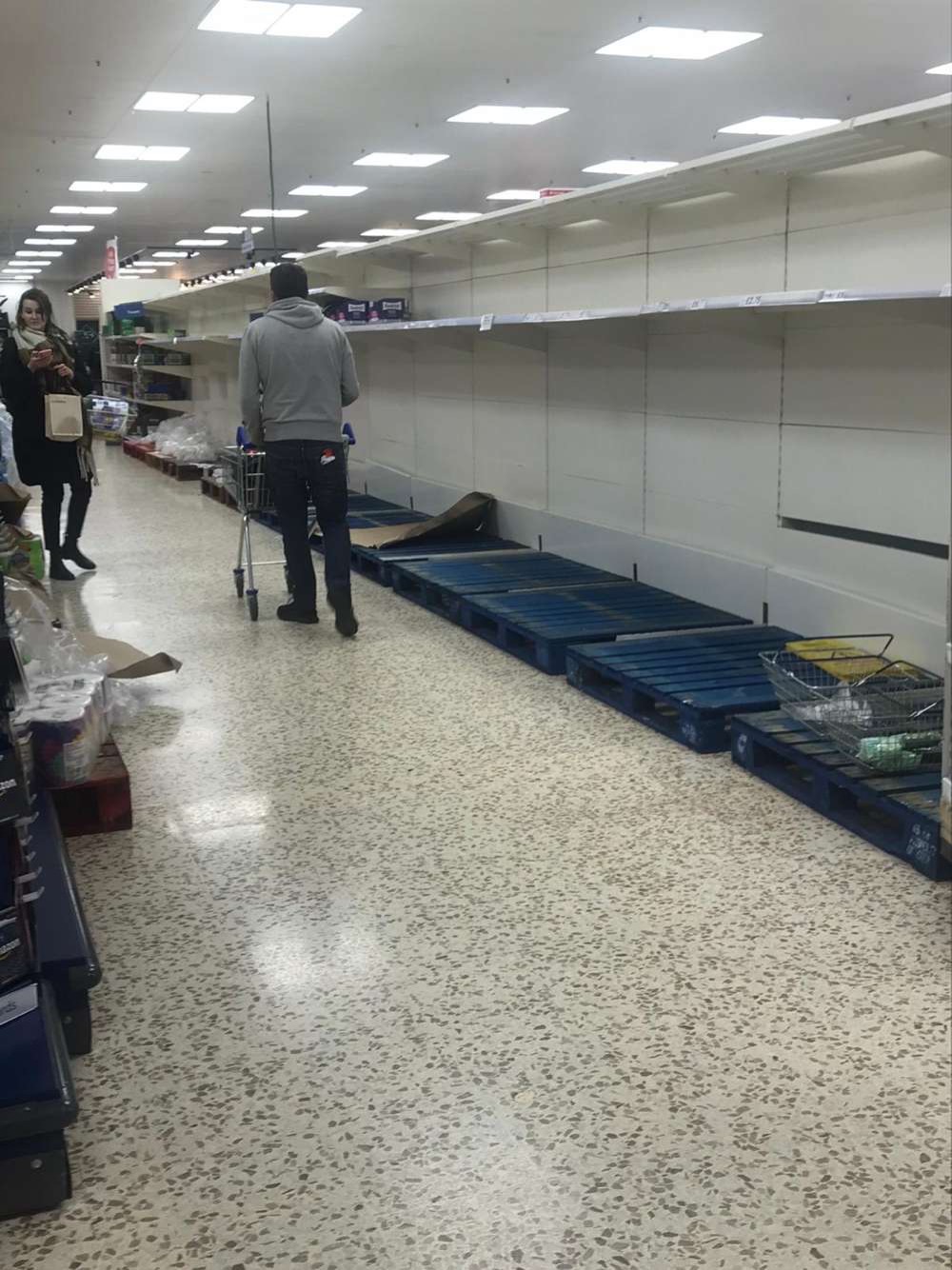Supermarkets throughout the country have become the busiest places to be during the coronavirus pandemic with customers looking to purchase essentials for the lockdown.
From the outset of the virus commodities like pasta, toilet roll, meats, and frozen foods have been hard to source.
So much so that 24 hour shops have had to limit their opening times in order to be able to have their shelves adequately stocked for customers.
Superstores have let “at risk” staff members go on leave and have compensated for this by employing a lot of temporary staff and giving existing staff more hours.
Ben Jewell, who works at a Tesco branch in Plymouth explained how this has affected him:
“I have been offered considerably more overtime hours since the outbreak.
“The intensity of the work has also increased as on both the self service and scan as you shop services, we aim to clean the tills after every customer. This isn’t realistic when only one member of staff has to manage this.”
In order to comply with government instruction stores have had to allow only a certain amount of people in at time. Bouncers have even been employed on the doors to monitor the queues.
Measures have been put in place across the store to ensure minimal contact is made and that customers keep a safe distance from each other.
But it seems the staff are made to continue at risk with a lack of protective clothing:
“We have been given very little PPE. The PPE we have has taken quite a while to come in. Tesco seem to be more concerned with us wearing new shirts which advertise preventative measures, as opposed to implementing effective measures.” said Ben.
Supermarkets are a hub of activity where germs can easily spread. This worries Ben who continues to put himself at danger:
“It’s highly likely I will catch the virus at work, especially given the current safety measures in place. This is because not only are a minority of customers ignoring the measures, staff are also ignoring simple measures.
“This does worry me, as although I’m not particularly worried about the virus myself, I live with people classed as vulnerable. I would rather not work and lose out on my income for a couple of months than infect someone in my household.”
As the UK approaches the peak of the pandemic it remains to be seen if more intense measures are installed. Until then it suggests more shop workers will remain exposed to the threat of Covid-19.

